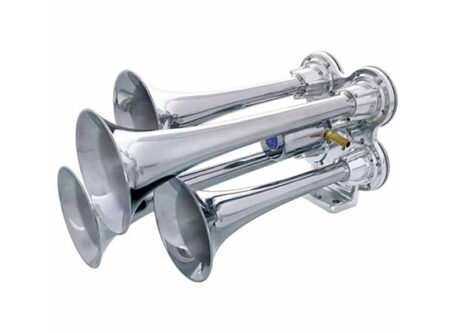Chicago predatory towing lawsuit receives class certification
A federal court has approved class certification in a lawsuit against the city of Chicago for alleged predatory towing.
On Nov. 15 an Illinois federal district court judge granted certification of two classes in a predatory towing lawsuit against Chicago. The certification comes eight months after the court denied the city’s motion to dismiss the case.
According to the order, the following classes have been certified in the case:
- Tow Class: All individuals and entities who, since June 11, 2017, had their vehicle towed by the city of Chicago due to it being considered “abandoned” by the city under Section 9-80-110(a)(b) of the Municipal Code of Chicago and where the vehicle lacked current state registration at the time of the tow.
- Vehicle-Disposal Class: All individuals and entities who, since June 11, 2014, had their vehicle towed – by or through the Department of Streets and Sanitation pursuant to Chapter 9-92 of the Municipal Code of Chicago – and disposed of by the city.
The certified classes can potentially include tens of thousands of people who had their car towed without due process.
The predatory towing lawsuit was filed in July 2019 by Andrea Santiago, a senior citizen with multiple sclerosis who is confined to a wheelchair. Santiago accuses the city of towing her car and eventually selling it for scrap without giving her due process.
Santiago owned a van that was regularly parked on the side of the street for easy access. In June 2018, the van was towed and impounded. The complaint claims that Santiago never received a notice by mail warning her, calling the action “towing without telling.”
The city claims it mailed a post-tow notice of vehicle impoundment on June 15, 2018. Meanwhile, storage fees were accumulating as Santiago’s daughter attempted to retrieve the van.
The lawsuit alleges that the city never mailed an additional notice of impending vehicle disposal. Such notice is required under state statute. The city sold the van to the towing company, United Road Towing, before Santiago’s daughter was able to locate it. That company then sold it for scrap to a salvage yard.
Santiago never received any of the proceeds from the van’s sale, which also is required by state law.
In 2005, Illinois amended the state’s vehicle code to address predatory towing.
Cities with a population of more than 500,000 people are required to notify motorists that their vehicle has been towed. Santiago’s lawsuit claims Chicago never amended its code to reflect those changes.
For more details about the lawsuit and the 2005 predatory towing legislation, click here.
The Owner-Operator Independent Drivers Association has a history of battling predatory towing within the trucking industry. Mike Matousek, OOIDA manager of government affairs, has been in the trenches in the fight against predatory towing.
“While the definition of ‘predatory towing’ might vary a bit for cars and trucks, there’s no question commercial motor vehicles are targeted by unscrupulous towing operators,” Matousek told Land Line. “We see it all over the country on a regular basis, which includes predatory booting schemes, legally questionable drive-away tows, and other forms of nonconsensual towing. The Chicago Police Department appears to be going after some of these crooked operators, but more can and must be done – not only in Chicago, but all across the country.” LL









